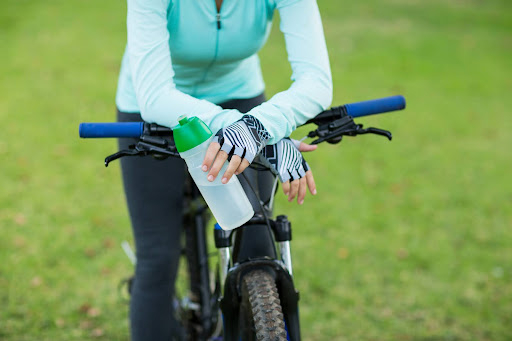When embarking on long bike rides, proper nutrition is key to maintaining energy levels, enhancing performance, and ensuring overall well-being. Whether you’re a seasoned cyclist or a beginner, understanding what and when to eat can make a significant difference in your endurance and recovery. Here are some essential nutrition tips to help you power through those long rides:
Before the Ride
Carbohydrate Loading
Consume a meal rich in complex carbohydrates the night before your ride. Foods like pasta, rice, potatoes, and whole grains are excellent choices. Carbohydrate loading helps to maximise your glycogen stores, which are your body’s primary energy source during prolonged exercise. This practice ensures that you have ample energy reserves to draw upon, reducing the risk of early fatigue.
Balanced Breakfast
On the morning of your ride, eat a balanced breakfast that includes carbohydrates, proteins, and healthy fats. Options like oatmeal with fruit, a smoothie with yoghurt and nuts, or whole-grain toast with avocado and eggs can provide sustained energy. This meal sets the foundation for your ride, supplying a steady stream of nutrients to keep you going strong.
During the Ride
Hydration
Staying hydrated is crucial. Sip water regularly and consider using an electrolyte drink to replenish salts lost through sweat. Aim to drink at least one bottle of water per hour, adjusting based on the intensity of your ride and weather conditions. Proper hydration helps maintain your performance and prevents dehydration, which can severely impact your endurance.
Energy Snacks
Pack easy-to-digest, high-energy snacks to consume every 45 minutes to an hour. Energy gels, bars, dried fruit, and bananas are popular choices among cyclists. These snacks help maintain blood sugar levels and prevent fatigue. Regularly consuming these snacks ensures a steady supply of energy, preventing the dreaded “bonk” where energy levels plummet.
Electrolytes
Ensure you’re getting enough electrolytes such as sodium, potassium, and magnesium. Electrolyte tablets or drinks can help prevent cramps and maintain muscle function. These minerals are essential for muscle contractions and overall bodily functions, and keeping them balanced is crucial for a successful ride.
After the Ride
Recovery Meal
Within 30 minutes of finishing your ride, consume a recovery meal that includes both carbohydrates and protein. This helps to replenish glycogen stores and repair muscle tissue. A smoothie with protein powder, a turkey sandwich, or yoghurt with granola and berries are good options. This post-ride meal is vital for kickstarting the recovery process, allowing your muscles to heal and grow stronger.
Hydrate
Continue to hydrate after your ride. Drinking water, electrolyte drinks, or even chocolate milk can help restore fluid balance and aid in recovery. Proper rehydration helps flush out metabolic waste and reduces muscle soreness, ensuring you’re ready for your next ride.
Additional Tips
Avoid High-Fiber Foods
On the day of your ride, avoid high-fibre foods that can cause gastrointestinal discomfort. Stick to easily digestible foods to ensure your stomach remains settled. This precaution helps you avoid any stomach issues that can derail your ride.
Listen to Your Body
Pay attention to your body’s signals. If you feel hungry, eat. If you feel thirsty, drink. Everyone’s nutritional needs are different, so it’s essential to find what works best for you through trial and error. Tuning into your body’s needs can help you tailor your nutrition strategy for optimal performance.
Conclusion
Proper nutrition is essential for long bike rides. By planning your meals and snacks carefully, staying hydrated, and listening to your body’s needs, you can enhance your cycling experience and achieve your performance goals. Remember, what you eat before, during, and after your ride can significantly impact your endurance, recovery, and overall enjoyment of the journey. Effective nutrition strategies can transform your rides, making them more enjoyable and helping you reach new heights in your cycling endeavours.
Written by Niall O’Riordan UBS
